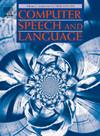GenCeption: Evaluate vision LLMs with unlabeled unimodal data
IF 3.4
3区 计算机科学
Q2 COMPUTER SCIENCE, ARTIFICIAL INTELLIGENCE
引用次数: 0
Abstract
Multimodal Large Language Models (MLLMs) are typically assessed using expensive annotated multimodal benchmarks, which often lag behind the rapidly evolving demands of MLLM evaluation. This paper outlines and validates GenCeption, a novel, annotation-free evaluation method that requires only unimodal data to measure inter-modality semantic coherence and inversely assesses MLLMs’ tendency to hallucinate. This approach eliminates the need for costly data annotation, minimizes the risk of training data contamination, is expected to result in slower benchmark saturation, and avoids the illusion of emerging abilities. Inspired by the DrawCeption game, GenCeption begins with a non-textual sample and proceeds through iterative description and generation steps. The semantic drift across iterations is quantified using the GC@ metric. While GenCeption is principally applicable to MLLMs across various modalities, this paper focuses on its implementation and validation for Vision LLMs (VLLMs). Based on the GenCeption method, we establish the MMECeption benchmark for evaluating VLLMs, and compare the performance of several popular VLLMs and human annotators. Our empirical results validate GenCeption’s effectiveness, demonstrating strong correlations with established VLLM benchmarks. VLLMs still significantly lag behind human performance and struggle especially with text-intensive tasks.
GenCeption:用未标记的单峰数据评估视觉llm
多模态大型语言模型(MLLM)通常使用昂贵的带注释的多模态基准进行评估,这通常落后于MLLM评估快速发展的需求。GenCeption是一种新颖的、无需注释的评估方法,它只需要单模态数据来测量模态间语义一致性,并反向评估mllm的幻觉倾向。这种方法消除了对昂贵的数据注释的需要,将训练数据污染的风险降至最低,预计会导致基准饱和速度变慢,并避免出现能力出现的错觉。受DrawCeption游戏的启发,GenCeption从一个非文本样本开始,通过迭代描述和生成步骤进行。跨迭代的语义漂移使用GC@T度量来量化。虽然GenCeption主要适用于各种形式的llm,但本文侧重于其在视觉llm (vllm)中的实现和验证。基于GenCeption方法,我们建立了评价vllm的MMECeption基准,并比较了几种流行的vllm和人工注释器的性能。我们的实证结果验证了GenCeption的有效性,证明了与已建立的VLLM基准的强相关性。vlllm仍然明显落后于人类的表现,特别是在文本密集型任务方面。
本文章由计算机程序翻译,如有差异,请以英文原文为准。
求助全文
约1分钟内获得全文
求助全文
来源期刊

Computer Speech and Language
工程技术-计算机:人工智能
CiteScore
11.30
自引率
4.70%
发文量
80
审稿时长
22.9 weeks
期刊介绍:
Computer Speech & Language publishes reports of original research related to the recognition, understanding, production, coding and mining of speech and language.
The speech and language sciences have a long history, but it is only relatively recently that large-scale implementation of and experimentation with complex models of speech and language processing has become feasible. Such research is often carried out somewhat separately by practitioners of artificial intelligence, computer science, electronic engineering, information retrieval, linguistics, phonetics, or psychology.
 求助内容:
求助内容: 应助结果提醒方式:
应助结果提醒方式:


